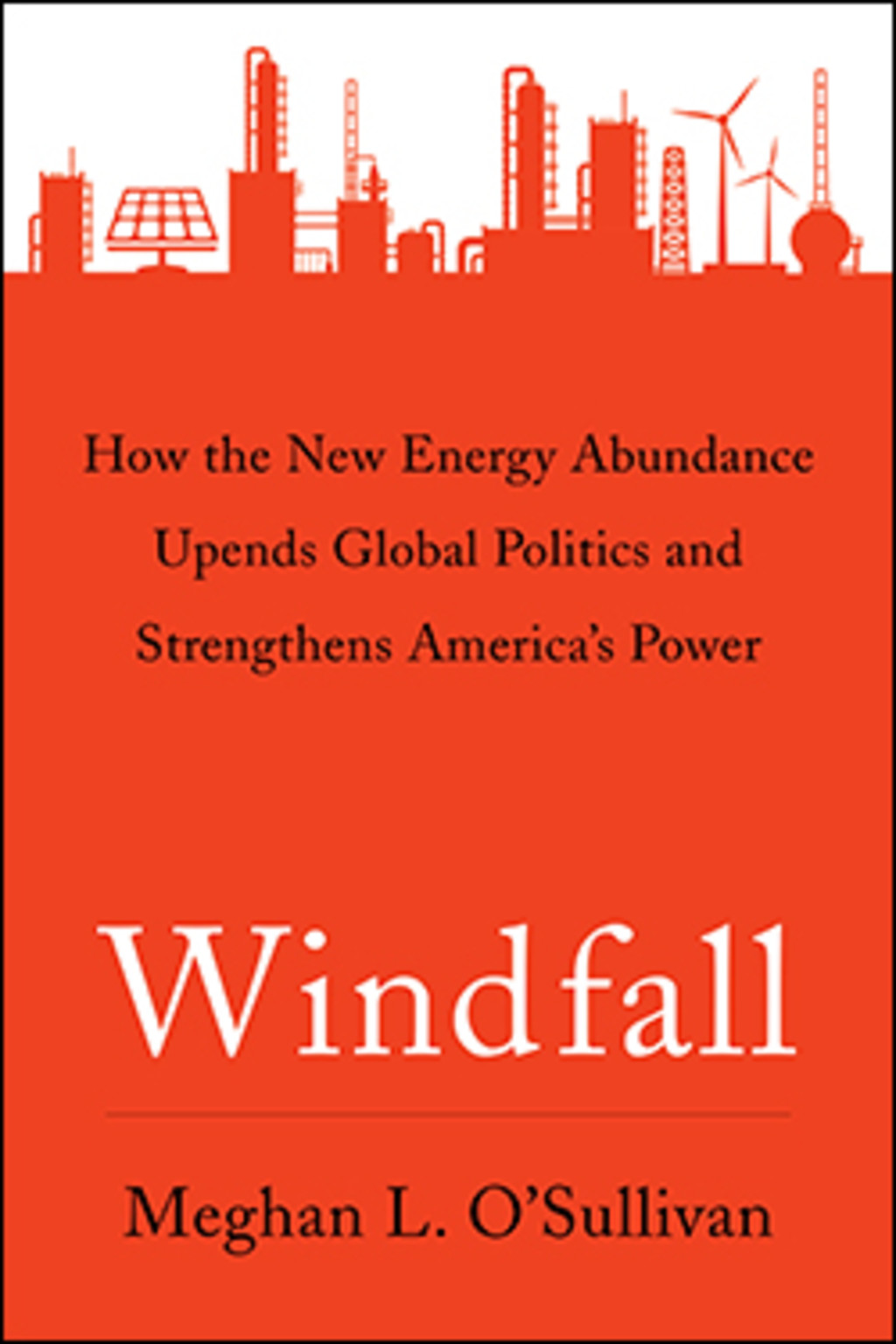Windfall
How the New Energy Abundance Upends Global Politics and Strengthens America’s Power
Energy is a much more important driver of foreign affairs than so many other factors given much more attention. O’Sullivan demonstrates how the move from global energy scarcity to energy abundance is shaping the interests and strategies of governments around the world.

- Publisher
- Simon & Schuster
- Release Date
- September 2017
- Pages
- 496
- ISBN
- 9781501107931
2017 Energy Writer of the Year
American Energy Center
In this bold, new book, Harvard professor and former Washington policymaker Meghan L. O’Sullivan offers us a compelling, alternative explanation for why world events are unfolding as they are. Based on travel to over two dozen countries and hundreds of interviews, Windfall vividly portrays how energy is—and has been—a much more important driver of foreign affairs than so many other factors given much more attention. This book provides its readers a fascinating and forceful new lens through which to view both the past and the future.
O’Sullivan unpacks an energy world that is complex and technical in a way that will captivate both novice and expert readers. Telling stories about people and historical events, she explains the dynamics behind the dramatic energy revolution of the last decade and provides insights into where this ongoing phenomenon is headed. Bringing together two worlds that are too rarely connected, O’Sullivan demonstrates how the move from global energy scarcity to energy abundance is shaping the interests and strategies of governments around the world.
The implications for the United States—the source of the technology and innovation that launched the energy revolution—are as profound as they will be surprising to many. From bolstering America’s economic prowess to offering the United States more options to lead internationally, recent energy developments are truly a boon to U.S. power. But America is not the only country or region transformed by the new energy abundance. O’Sullivan describes how Europe, Russia, China, and the Middle East also are grappling with the impact of a transformed energy landscape—and how these struggles have collectively reordered the way the world works.
O’Sullivan offers readers astute analysis and entertaining anecdotes. Drawing on her experience as a former policymaker, she also sounds an urgent call to Washington to embrace a fresh mindset, one which sees America’s energy situation as an asset, not a vulnerability. She provides a wide-ranging set of ideas to policymakers in the United States and elsewhere about how to capitalize on, or adapt to, the new energy realities.
In the words of former World Bank president Robert Zoellick, Windfall is “an insightful, modern companion to Dan Yergin’s Pulitzer Prize winning book, The Prize.” It unveils how energy abundance is transforming the fates and fortunes of the world’s most powerful countries and companies—making it a readable and engrossing guide for leaders in business and government who need to how, where, and why these new energy realities matter.
Reviews and Endorsements
A lucid and provocative look at the geopolitics of energy and the shifts and dislocations it is likely to produce.
Kirkus Reviews
O’Sullivan takes the significance of energy beyond the price of gas at the pump to explain how energy, technology, the environment, and politics drive foreign policy. She demystifies and shows a new map of power, molecular and political.
Robert B. Zoellick, Former President of the World Bank, US Trade Representative, and Deputy Secretary of State
Brilliant. A must read to understand America’s new energy fortunes. Access to massive oil and gas reserves at home provides the United States with added power and leverage, presenting new possibilities for cooperation and competition. Windfall unpacks these complexities with great clarity and insight.
Michèle Flournoy, CEO of the Center of New American Security and former Undersecretary of Defense
As a former policy maker and a scholar, Meghan O’Sullivan is well placed to issue this urgent and timely call to policymakers to embrace a new mindset. She offers a rich and sophisticated assessment of the consequences of today’s new energy realities not only for North America, but also for Europe, Russia, the Middle East, and China.
Nicholas Burns, Professor, Harvard University, and former Undersecretary of State
Windfall is a big idea book that offers a bold take on how energy markets shape politics and foreign policy. In this sophisticated but highly readable narrative, she challenges much of the conventional wisdom about the benefits of America’s energy boom to the United States.
Diana Farrell, CEO and President, JP Morgan Institute, and former Deputy Director of the National Economic Council